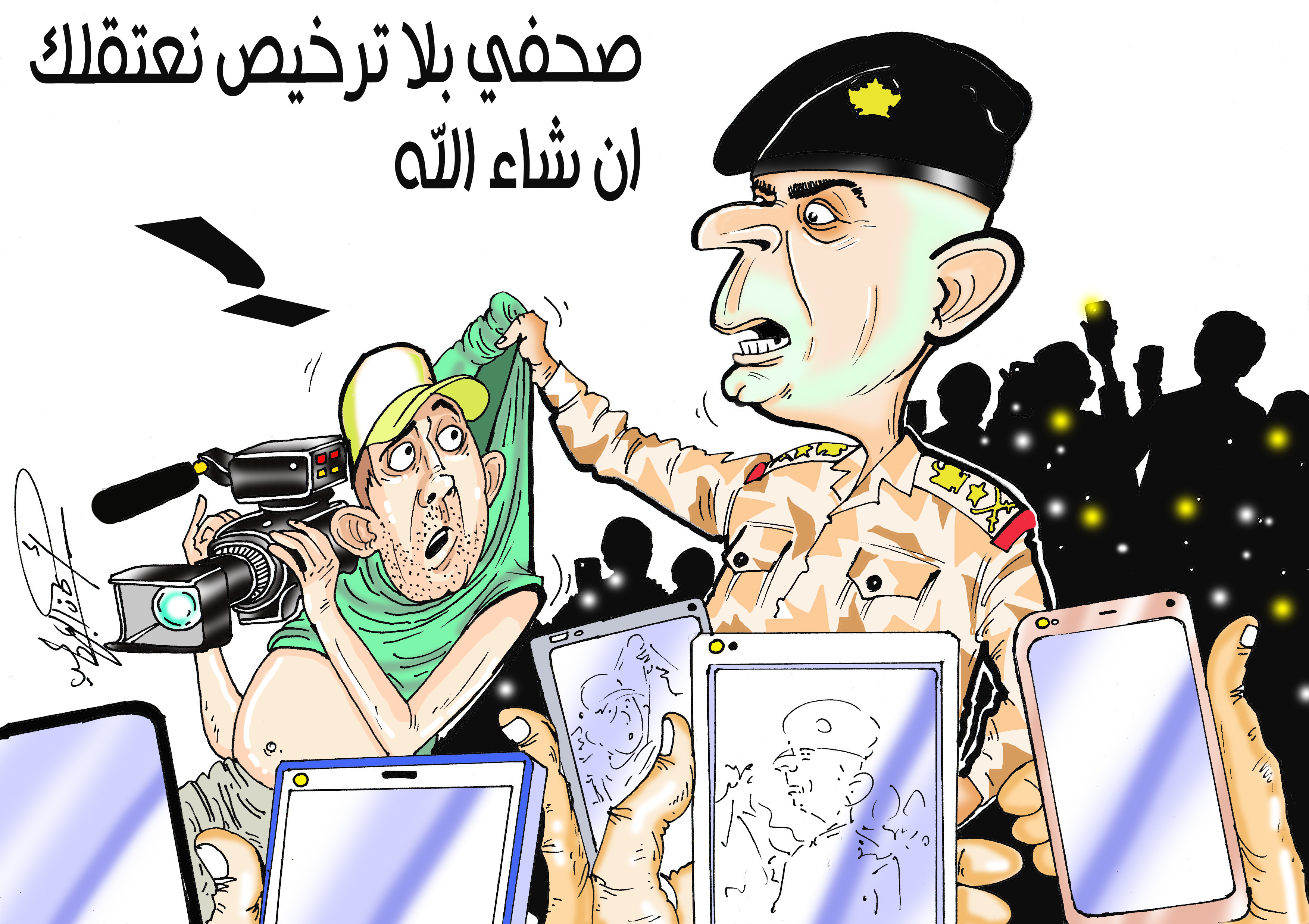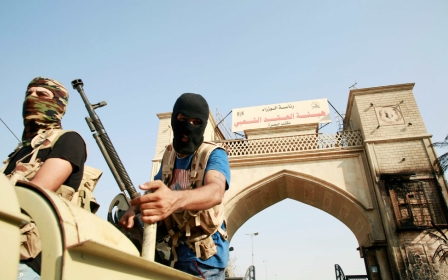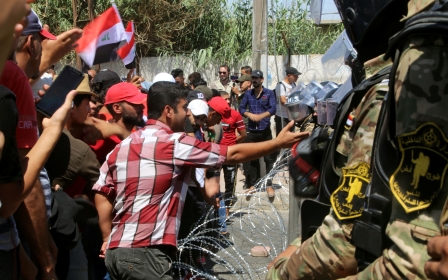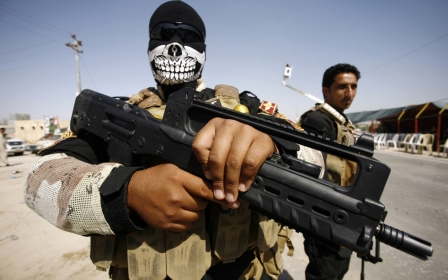Threats and arrests face Basra activists as they call for jobs, water and electricity
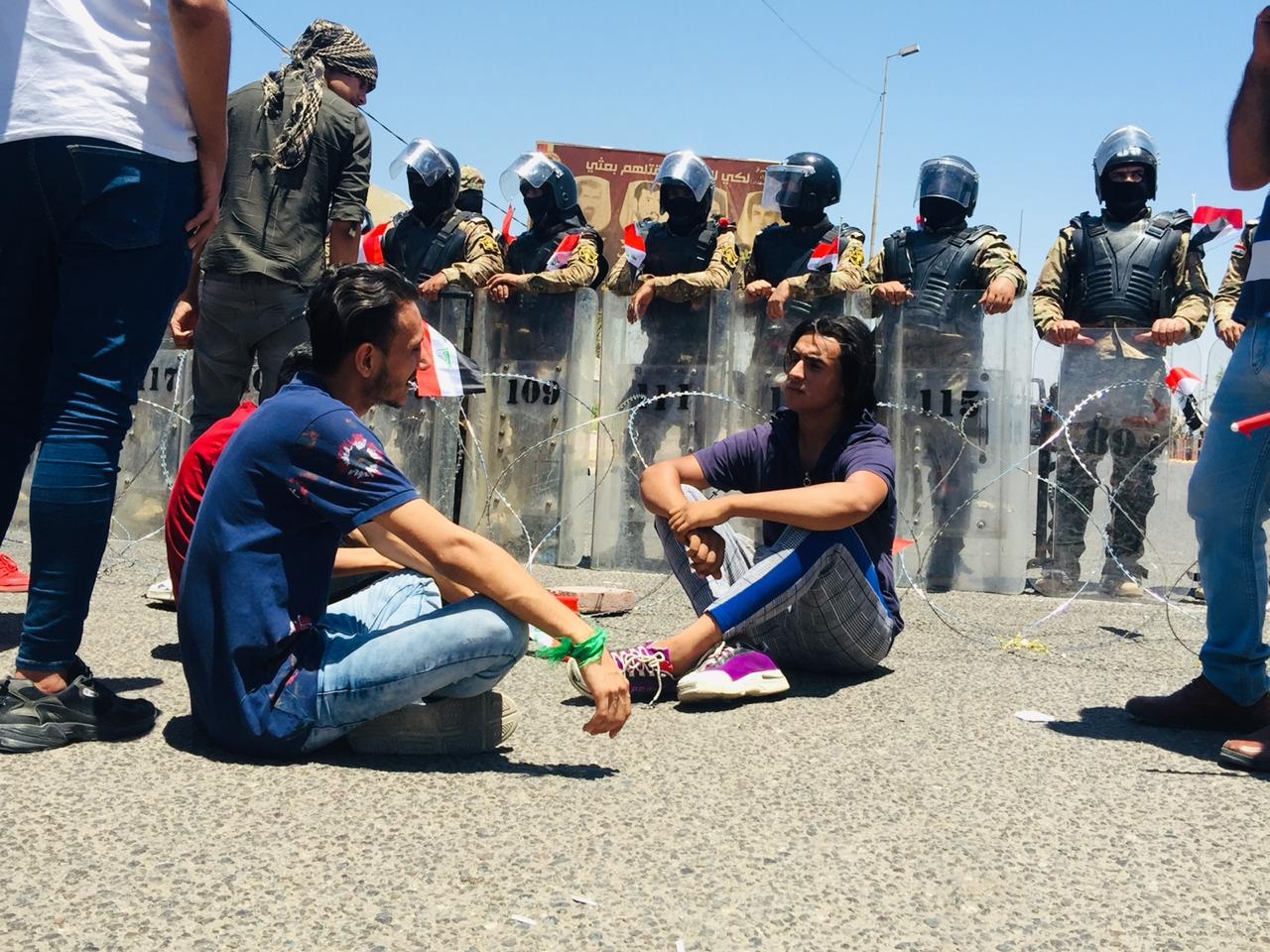
Protesters who have taken to the streets of Basra in recent weeks over unemployment, a lack of electricity and water and corruption have faced a fierce crackdown by security forces and shadowy extra-state actors.
The city is one of Iraq's most important governorates, with vast oil reserves providing the central driving force for the Iraqi economy.
However, after decades of under investment it desperately lacks the necessary infrastructure for a city of its size.
With a long, hot summer looming, protests began on 20 June, with hundreds of people calling for improved healthcare, insurance, clean water, electricity and jobs.
Perhaps fearing a repeat of last year's summer demonstrations - which saw the Iranian consulate and other government buildings torched and dozens of people killed over similar calls for basic services - the security services have cracked down quickly.
New MEE newsletter: Jerusalem Dispatch
Sign up to get the latest insights and analysis on Israel-Palestine, alongside Turkey Unpacked and other MEE newsletters
Ahmed Mehalhal, a protester in Basra, told Middle East Eye that he and others initiated a small demonstration on 29 June at Abdel Karim Qasim square in the city centre, leading people to a market to try and draw more supporters.
"Immediately, the Iraqi forces shot us with sound bombs and hit us with black rubber pipes," he said.
"After hours we returned home when the night came, Iraqi forces entered protesters' houses and arrested many protesters."
Mehalhal, 23, said that while he was away from his home at the protest, two Silverado pick-ups, a white Dodge Charger and GXR carrying 25 men wearing black, forced their way in to his property.
The men claimed to be from national security, but he said they did not show any identification. One was wearing "dishdasha" - a traditional long white robe - rather than official uniform.
"They took my father's fingerprints, and scared my mother," said Melhalhal. "One of them told my father that 'If not today, we will arrest your son tomorrow.'"
He added that Major General Qassem Nazzal, the commander of Basra operations, called him twice and told him to "go to the nearest police station to give myself up".
"The only thing I have done is to demand my rights," Mehalhal said.
'No permission'
Along with the protesters, at least two journalists have also faced arrest.
On 1 July, reporter Najah Alabdy and her videographer, Salam Sami, both from the Iraqi satellite news channel Al-Sumaria, were arrested while covering the protests.
The two were released a few hours later, but a clear message had been sent by the local authorities to the protesters and the media.
This message was further emphasised on 3 July when Nazzal stated in a televised interview that his forces would arrest any journalist who covers the Basra protests.
Colonel Bassem Ghanem, the local police spokesperson, acknowledged to MEE that police officers were using many tactics - such as undercover officers - and new ways to enforce the law, but pointed out that the protesters arrested were not "authorised to protest, they have no permission to do so".
He added that the police had arrested some protesters for a few hours before releasing them. "Anyone protesting without permission we will take measures against," he said.
Ibrahim Al-Sarraj, the head of Iraqi Association for the Defence of Journalists' Rights, said it was "very wrong to harass journalists during the coverage of demonstrations," and he promised to file a case against Nazzal if he did not disavow his comments.
"The security services are supposed to provide full protection to journalists and facilitate their access to do their work," he said.
Demands 'unclear'
At a news conference last month, Basra's governor, Asaad al-Edani, described the protesters' demands as "unclear".
Edani ordered the protests to stop for 10 days in order to review the demands of the people, and said the protests should not resume unless there was official approval.
Despite the threats, protesters say they have reached the end of their tether, and will not stop their street demonstrations.
The government gave us zero services, no clean water, no electricity, no employment
- Ali Muhanna, activist
"The government gave us zero services, no clean water, no electricity, no employment," said 23-year-old Ali Muhanna.
"They want to close our mouths. I got arrested many times and I keep protesting."
Others have accused the local government of hypocrisy and failing in its basic duties.
"You did not stop drug smuggling that enters across Iran, but you stop me just because I am demanding my rights and rights of people of my city, Basra" said one Basra-based protester, who asked to remain anonymous due to security concerns.
"The militias want to stop the protests, and they are supported by the government. No one can prevent them from arresting us."
Extra-state groups
Basra is heavily controlled by Iran-backed armed groups and their aligned political parties. They have been accused in the past of helping to intimidate demonstrators in the province and infiltrating protests in attempt to stir up unrest.
Activists are often taken to unknown locations - sometimes just rooms in government buildings or oil facilities converted into makeshift cells - and subjected to beatings by police or allied extra-state groups, according to human rights reporters.
One protester, Abbas Hassan, 22, said on 30 June security forces had "arrested four protesters in one day, and we do not know where they drove them".
"The Iraqi forces have a list of names of top figures of the protests and they arrest them from time to time," Hassan said.
He added that the policemen were "uncovered and wearing normal clothes like us, to arrest us".
Social media campaign
The Basra protests have encouraged people in the neighbouring city of Nasiriyah in Dhi Qar province to take to the streets, voicing similar complaints.
In the Al-Eslah district of Nasiriyah city, a massive demonstration on 30 June demanded the resignation of the district administration and the head of the municipal council. Iraqi security forces responded by firing into the air to disperse the protests.
Hashtags such as #BasraProtests, #IraqProtests and #Release-Detainees have been trending on Twitter, attracting significant interest worldwide.
Iraqis have used social media to put additional pressure on the Iraqi authorities, and ensure better treatment of those in custody, as well as expediting their release.
Lawyer Hassan Sarhan, head of a legal team representing the Basra protesters, said: "During the past two days, the local authorities have arrested more than 20 people, one of which was just 15 years old.
"I have been able to secure the release of 15 but five still remain in custody."
Sarhan said demonstrators had been arrested in a seemingly random fashion, so as to disrupt the protests.
He added that the security forces dealt with the demonstrators in court as if they were "terrorists".
"That the Basra police spokesperson has claimed that there are no detainees is a lie," Sarhan said.
"The governor of Basra has been charged with killing more than 23 protesters in the summer of 2018, so how can he order demonstrations to stop? It is unbelievable."
Sarkawt Shamsulddin, an MP from the New Generation party, said that Nazzal needed to be "held accountable for his actions".
"We have laws and the constitution guarantees civilians' rights to peaceful assembly," he told MEE.
"All we need to do is to punish those who violate the law and constitution, civilians or military."
Middle East Eye delivers independent and unrivalled coverage and analysis of the Middle East, North Africa and beyond. To learn more about republishing this content and the associated fees, please fill out this form. More about MEE can be found here.




